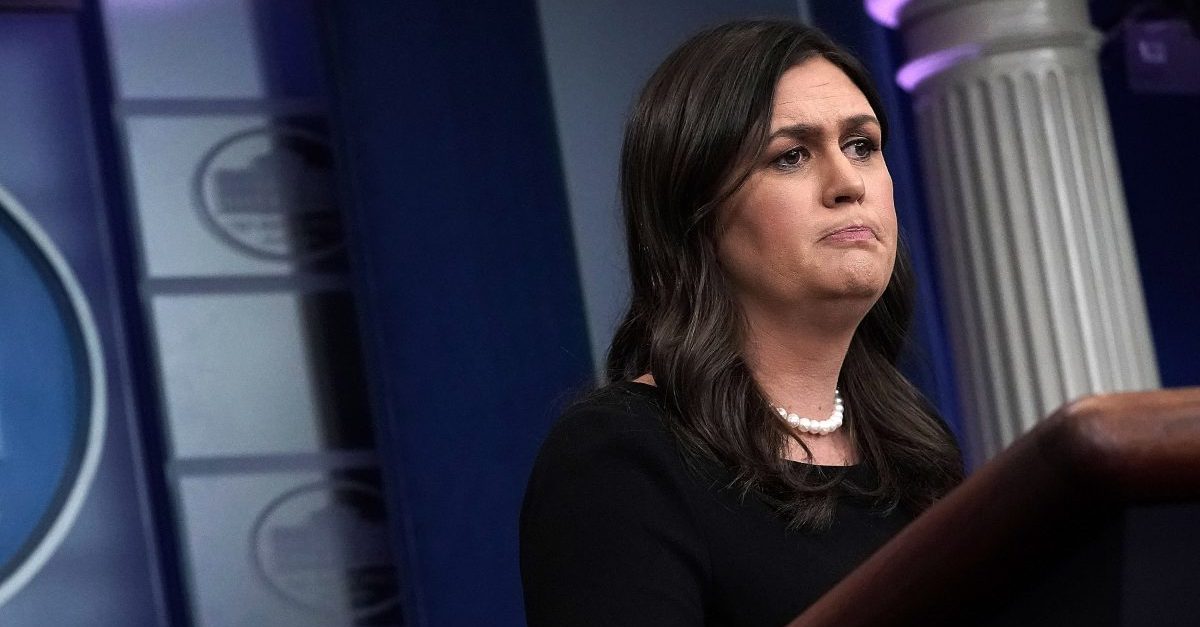
Owners of D.C. establishments that were inspired by what happened to White House press secretary Sarah Huckabee Sanders on Friday may want to be careful before taking similar action against her or other members of the Trump administration. Sanders was kicked out of a restaurant in Virginia, not because of anything she said or did at the eatery, but apparently because of her role in the Trump White House. The owner beckoned her from her table, and asked her to leave because she is part of an “inhumane and unethical” administration.
This sort of thing isn’t just a sign of ever-increasing hostility in the political sphere, it could be illegal, depending on where it is.
David Cole, National Legal Director of the ACLU, told Law&Crime that public accommodations laws prohibit businesses that are open to the public from discriminating against people based on certain characteristics.
“Public accommodations laws vary from state to state (and city to city), but they generally bar businesses open to the public from refusing service to individuals based on certain protected characteristics,” Cole said, noting that they each decide which characteristics qualify.
“All protect against race discrimination, most protect against sex discrimination, some protect against sexual orientation discrimination, etc.”
So what about political leanings? As it turns out, “only three jurisdictions protect against discriminatory refusals of service based on political affiliation or opinion,” Cole said, but one of them is Washington, D.C. (The others are Seattle and the Virgin Islands.)
The Red Hen, the restaurant that booted Sanders, is in Virginia, but if any establishments in D.C. take a cue from them, they could be held in violation of D.C. Code Section 2-1402.31, which bars discriminatory actions against people in whole or in part due to characteristics including race, religion, nationality, sex, age, and more, including political affiliation. Violations can result in punishments including court-ordered corrective action or monetary penalties.
The issue of public accommodations laws recently–and famously–came up in the Masterpiece Cake Shop case, where a baker was held in violating Colorado’s public accommodations law for refusing to bake a cake for a gay wedding. The case drew national attention, as it pitted interests of gay rights against religious freedom, but the Supreme Court ruled in favor of the baker because a state commission showed hostility towards his beliefs and didn’t give him a fair hearing.
[Image via Alex Wong/Getty Images]